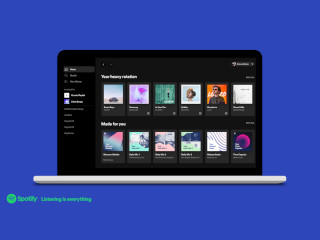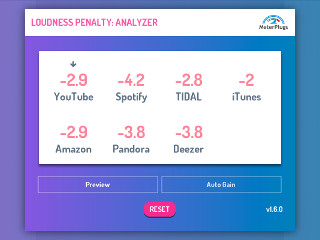It’s the hotly debated question that fuelled the Loudness Wars. And yet, however many years later, have we gotten any closer to a conclusive answer? There are lots of opinions and anecdotes, but I wanted to see if I could find something concrete. I dug up some of the latest research on the subject. Here’s what I found:
Is Louder Better?
In multiple studies, it has been found that people tend to prefer louder versions of the same song, all things being equal [1][2].
In other words, pick any song and play it, then turn it up by a couple dBs and play it again: most people will prefer the second (louder) version, often times noting that it sounds more “open,” “dynamic,” or “engaging.”
But if you’re a mixing / mastering engineer, that doesn’t really help you, because you can’t apply a constant gain offset to your music when you’re already peaking near 0 dBFS (unless you want to clip). Instead, you need to apply compression and limiting, which reduces dynamic range, to boost your average levels.
So the better question is, do people prefer louder and more compressed music?
Compression
Loudness war proponents would say, “Yes, people do prefer louder, more compressed music,” and the science agrees, up to a point.
Listening tests indicate that a moderate amount of compression is desirable, while higher levels of compression either have no further benefit or become less desirable [2]. The “sweet spot” seems to depend on genre, with higher levels of compression being more tolerable with rock music than classical, for example [2].
But the problem with these A/B tests is that, in the real-world, listeners don’t compare multiple versions of the same song. The tests are precise, but contrived.
So the more realistic question is, do people prefer louder and more compressed music, when it’s shuffled in with other music (e.g., on the radio)?
The Radio
One study suggests that when songs are shuffled, loudness takes a backseat to content [1].
You choose a song that you like regardless of whether or not it is the loudest. In fact, the study showed no statistically significant link between loudness and a listener’s choice of song.
BUT…
The study used a collection of songs, each one from a different genre [1]. Because of this, I am not surprised that someone who likes jazz, for example, would select a jazz song over the rock, country and classical songs, no matter how loud each song was. Similarly, a rock fan would probably choose the rock song regardless of its loudness.
What if the listener had to choose amongst a collection of jazz songs only? Then perhaps loudness would have played a bigger role. We just don’t know.
Online Streaming
The results get even more interesting when loudness normalization is used, as with iTunes, YouTube, Spotify, Tidal, etc.
In these cases, listeners perceived highly compressed versions of the same song as being less loud, dynamic and preferable than the original [2]. In other words, large amounts of compression were strictly detrimental with loudness normalization.
But was the study too narrowly focused to support this claim in general?
The study only used two different songs, one rock and one classical. Could the results have been different for EDM, for example? Sure.
Furthermore, the compressed versions of the tracks were created using a brick wall limiter. Could “higher quality” versions have been created using more advanced techniques? Likely. Again, more research is needed.
Final Thoughts
The list of questions goes on…
Do people with a musical background perceive loudness and dynamics differently than “casual” listeners? Do some people have a preference for a “compressed” sound while others don’t? One study suggests that the answer to both of these questions is “yes.” [2]
Where does that leave us?
I’m left feeling that the reality is complex and depends on the individual, the genre and the playback medium. There’s no perfect answer for every situation. The “safe” answer is that a moderate level of compression is desirable. Too much, and it’ll turn people off. Too little, and it could have sounded “better.”
In the end, people aren’t going to listen to your music because it’s hyper-compressed. Better to spend you time and energy making your music sound great, and making more of it.
References
[1] Hans-Joachim Maempel and Fabian Gawlik, “The influence of sound processing on listeners’ program choice in radio broadcasting,” presented at AES 126th Conventions, Munich, Germany, 2009 May 7-10.
[2] Naomi B. H. Croghan, Kathryn H. Arehart and James M. Kates, “Quality and loudness judgments for music subjected to compression limiting,” The Journal of the Acoustical Society of America, August 2012.
Now it’s your turn. How do you think about loudness and compression when mixing / mastering? Do you vary the amount of compression depending on genre or the delivery format (e.g., CD vs. vinyl vs. streaming)? How do you find a balance between loudness and dynamics?






